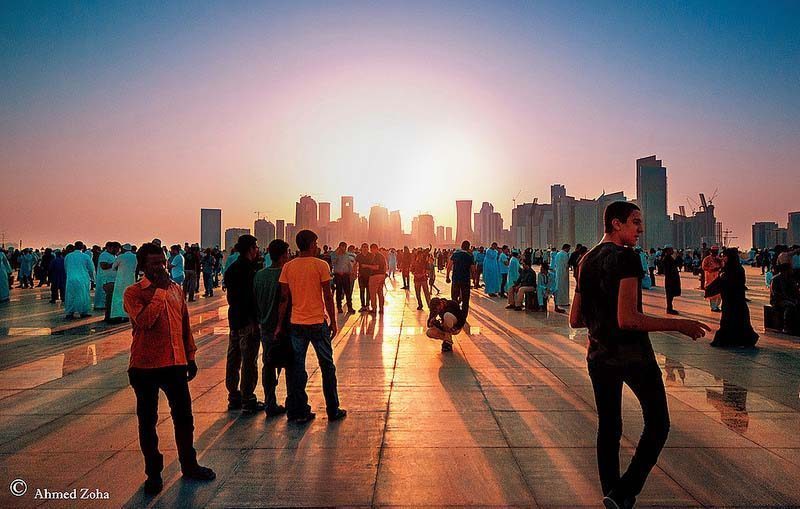
Qatar has fallen several spots in the newest edition of a UN report that ranks countries by the happiness of their residents.
According to the World Happiness Report 2016 Update, Qatar now comes 36th out of 157 countries, down from 28th last year.
This is the first significant change in the country’s rankings since the report began tabulating annual results in 2012. It may have to do with the inclusion of non-Arabic speakers in the results for the first time.
Qatar ranked 27th from 2010-11 and 29th in the 2012 report.
Also this year, Qatar fell below Saudi Arabia for the first time. The neighboring country was 34th this year, down one place from 2015.

And while the report still ranks the UAE as the happiest place to live in the GCC, that country has also dropped eight places, from 20th last year to a new ranking of 28th.
There is little change at the top of the table, however, with European countries continuing to dominate the list. Seven of the top 10 are in Europe, with Denmark, Switzerland and Iceland comprising the top three.
Meanwhile, the scars that war and financial and political instability have had on residents of Togo, Syria and Burundi are clearly reflected, as those nations make up the bottom three of the index.
How the list is compiled
To arrive at their findings, report authors the Sustainable Development Solutions Network considers a range of factors, including statistics such as GDP per capita and life expectancy, as well as people’s perceptions of things like:
- Social support (having someone to count on in times of trouble);
- Trust (a perceived absence of corruption in government and business);
- Freedom to make life decisions; and
- Generosity.
Qatar ranked highly in terms of GDP per capita and perceived low levels of corruption, but did less well regarding perceptions of generosity.

Most of the 2016 report’s data comes from the results of the Gallup World Poll series from 2013-15.
To compile this survey, Gallup interviews at least 1,000 people in each of the 158 countries each year, either by telephone or in person.
Non-Arabic speakers now included
Up until 2014, all of the Gallup interviews in the GCC were carried out solely in Arabic, leading the polling company to concede that the opinions of more than half of the adult populations of the UAE and Qatar were excluded from the report.
But, it has now also started offering telephone interviews in English in Qatar, the UAE, Saudi Arabia, Kuwait and Bahrain.
While still excluding those who do not speak Arabic or English confidently, the move does allow the company to reach out to more of the countries’ large expat populations.

This new input has significantly changed the rankings of countries like Qatar, which is home to a majority expat population.
Although no specific demographic breakdown is given for the people surveyed here, the report’s authors said that in the UAE, the Emiratis surveyed were significantly happier than their expat counterparts.
The report stated that if the results of interviews with the Emirati population had been used alone, the UAE would have ranked 15th in the world this year, instead of 28th.
“The United Arab Emirates was especially affected by the changes in survey methods, in part because of its newly sampled non-Emirati population,” the report said.
“Where the expatriate population is very large, it comes to dominate the overall averages based on the total resident population.”
Inequality of happiness
Although Qatar placed relatively highly in the world rankings, it scored poorly in other rankings in the report that focus on inequality in society.

The rankings for “equality of happiness” are very different than the report’s overall rankings, as they highlight how experiences vary for a country’s poor, compared to its wealthy.
For example, Bhutan, which ranks 84th in the main table, has the top ranking for equality.
Qatar comes 105th out of 157 countries in this list, four places below Bahrain, but significantly higher than Saudi Arabia, which comes 132nd.
The UAE is apparently the most “equal” country in the region, placing at 77th.
The report’s authors state that inequality of happiness in a country has a significant effect on everyone living there, whether they are wealthy or not.
Thoughts?







